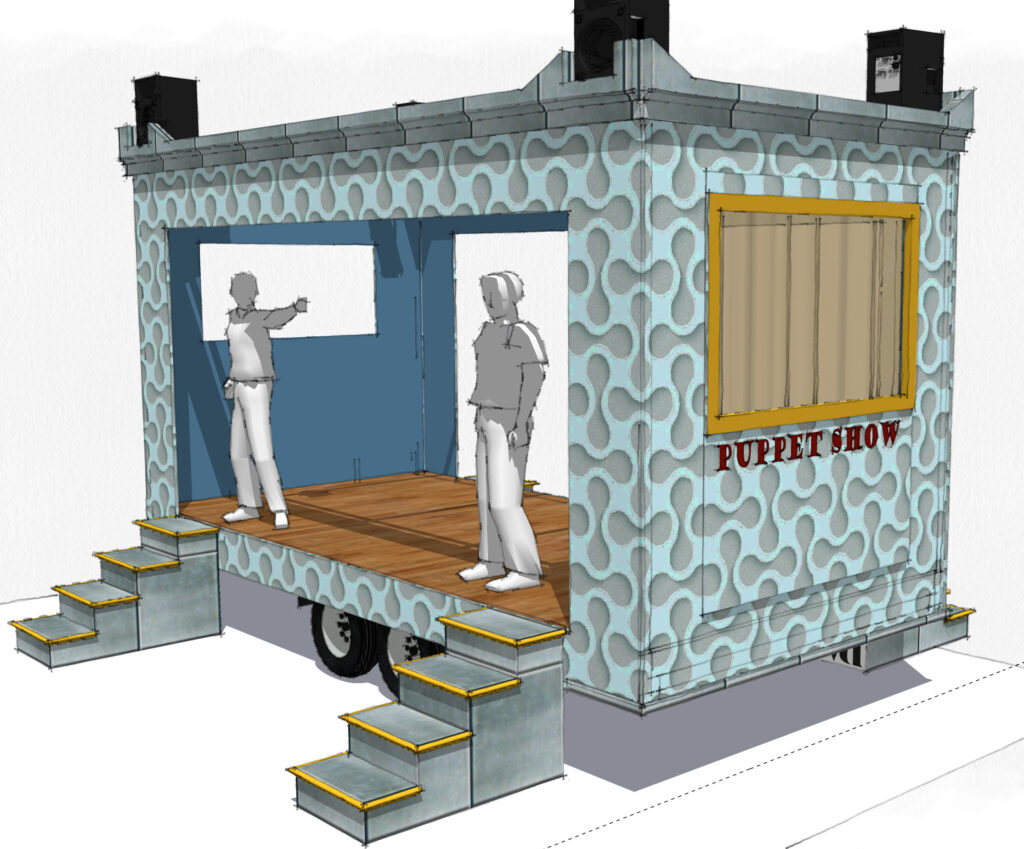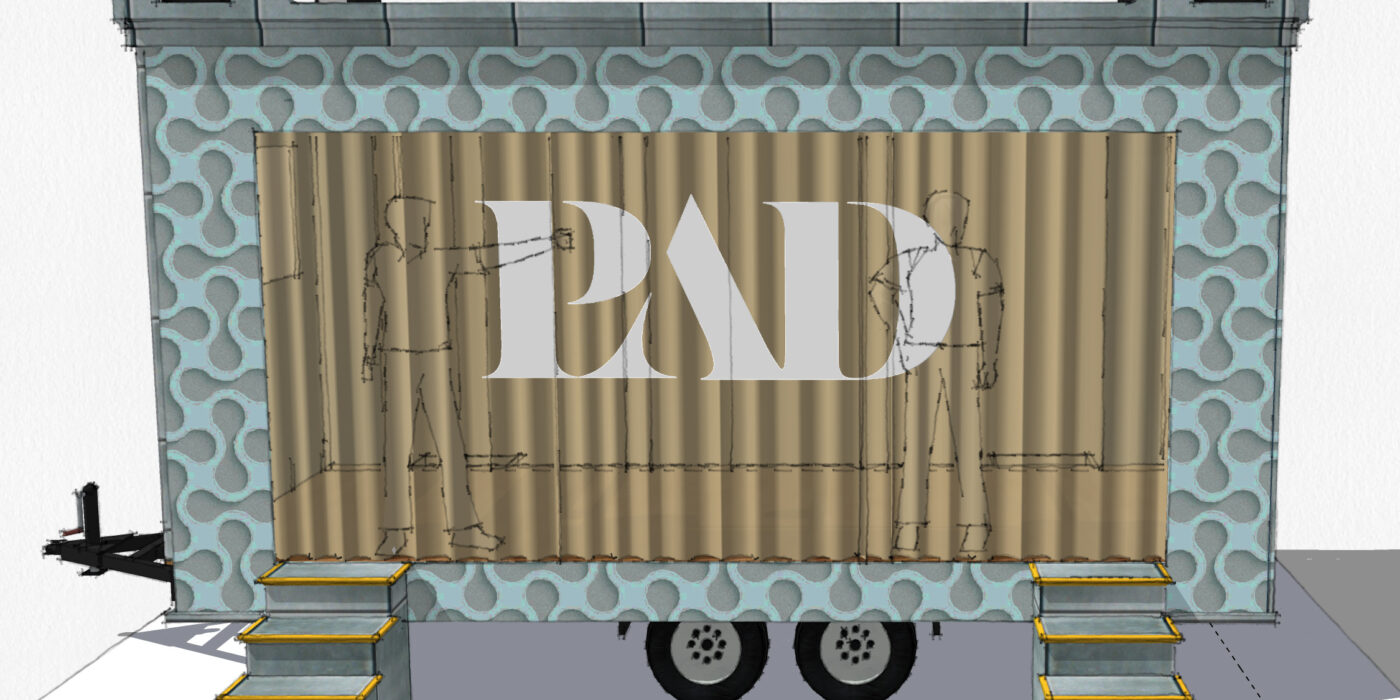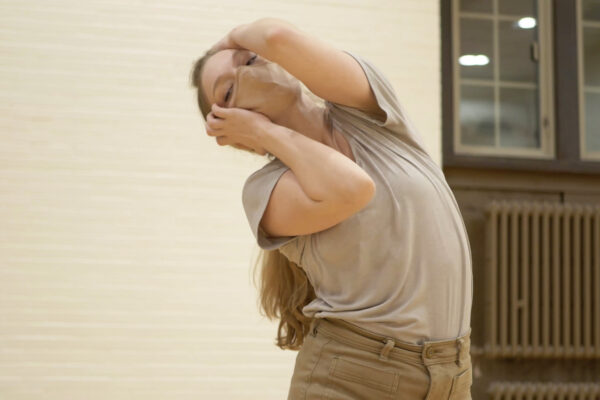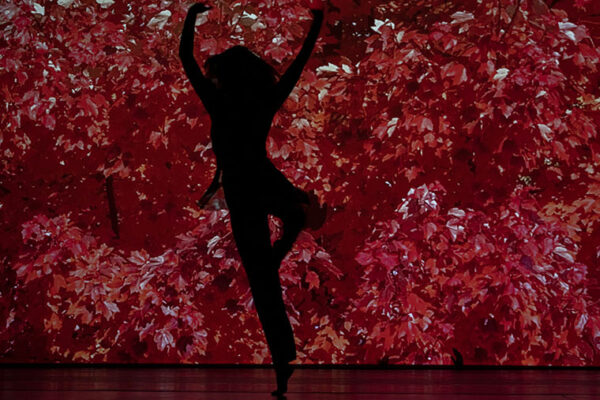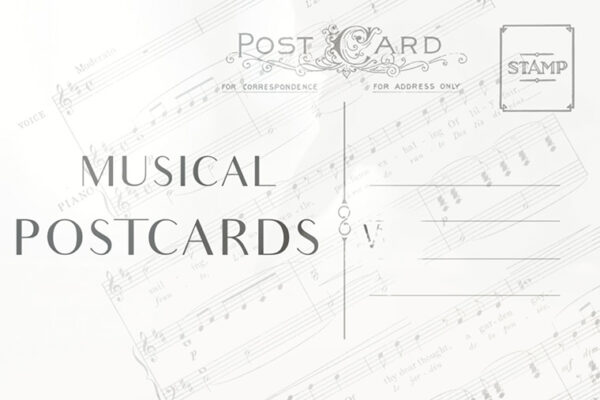There’s a press conference in heaven. Lucifer’s hand pops into the air. “Hey God,” he asks, “why did you create COVID-19?”
The Almighty surveys the crowd, eyes cool. “Thanks everybody,” He says. “No further questions.”
It’s a funny moment but a pointed exchange, one that goes to the heart of “The Covid Mysteries.”
The new play, which will debut Thursday, April 1, is written by Robert Henke, professor of comparative literature and of performing arts in Arts & Sciences at Washington University in St. Louis. It is based on the classic York Mysteries, a 14th century cycle of biblical stories that were traditionally presented in the English city of York during the spring festival of Corpus Christi.
“Medieval mystery plays assumed a unified religious community, while we intend our play for an audience of diverse backgrounds and beliefs,” Henke said. “In boiling the cycle down to about 80 minutes, we very irreverently play through two questions: Why does the divine being need humanity? And what does it mean to be a human being?
“Big questions, probably not answered in our commedia dell’arte style,” Henke added. “But medieval drama was not without irreverence.
“The devil could always steal the show.”
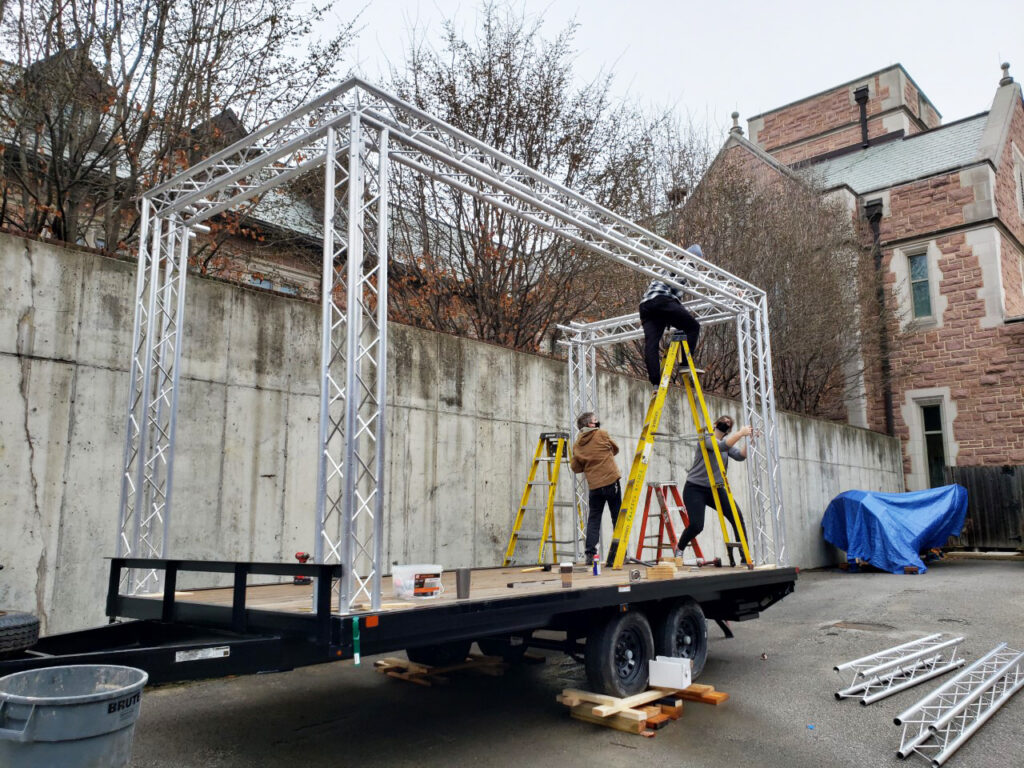
Live from Mudd Field
Seeds for “The Covid Mysteries” were planted last spring, when the pandemic forced cancellation of several Performing Arts Department shows. For the 2020-21 season, the PAD pivoted to filmed, streaming performances, but “The Covid Mysteries,” which will take place on a mobile stage on Mudd Field, is the department’s first event for a live audience in more than a year.
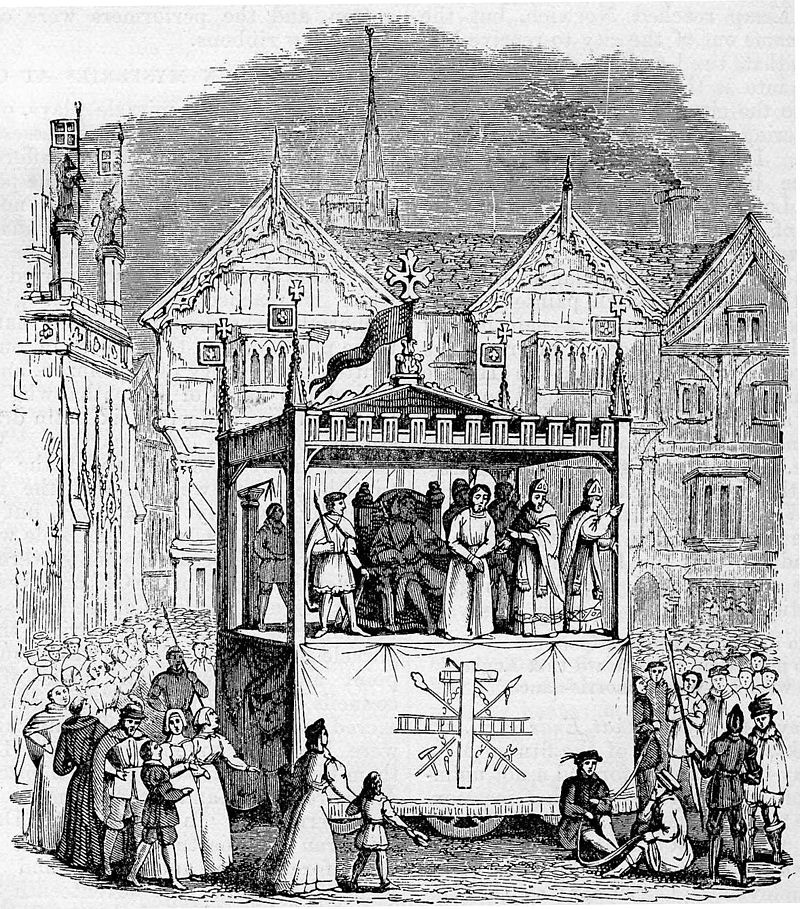
“It’s been quite a project,” said William Whitaker, professor of practice in drama, who directs the cast of six. Whitaker explained that, as the mechanics of COVID-19 transmission became more clear, the department realized that outdoor events, which allow for greater social distance and air circulation, could be held in relative safety. The question was “how do you bring the stage outdoors?”
For an answer, Whitaker and scenic designer Robert Morgan turned, like Henke, to the York Mysteries, which historically were presented on a series of wagons.
“Pageant wagons were introduced by the church to spread Christianity across Europe to a largely illiterate population,” explained Morgan, who regularly lectures about pageant wagons in his “Intro to Theatre Production” class. “But it was not until the pandemic forced us to move outdoors that I saw a 21st-century use.”
Morgan designed a simple steel-framed stage that could be built atop a commercial utility trailer. Construction commenced this spring, and was handled largely in-house by the PAD tech crew.
“It’s pretty durable,” Whitaker said. “It’s something we could use regularly, for small shows, concerts or even student events. It’s not a one-off.”
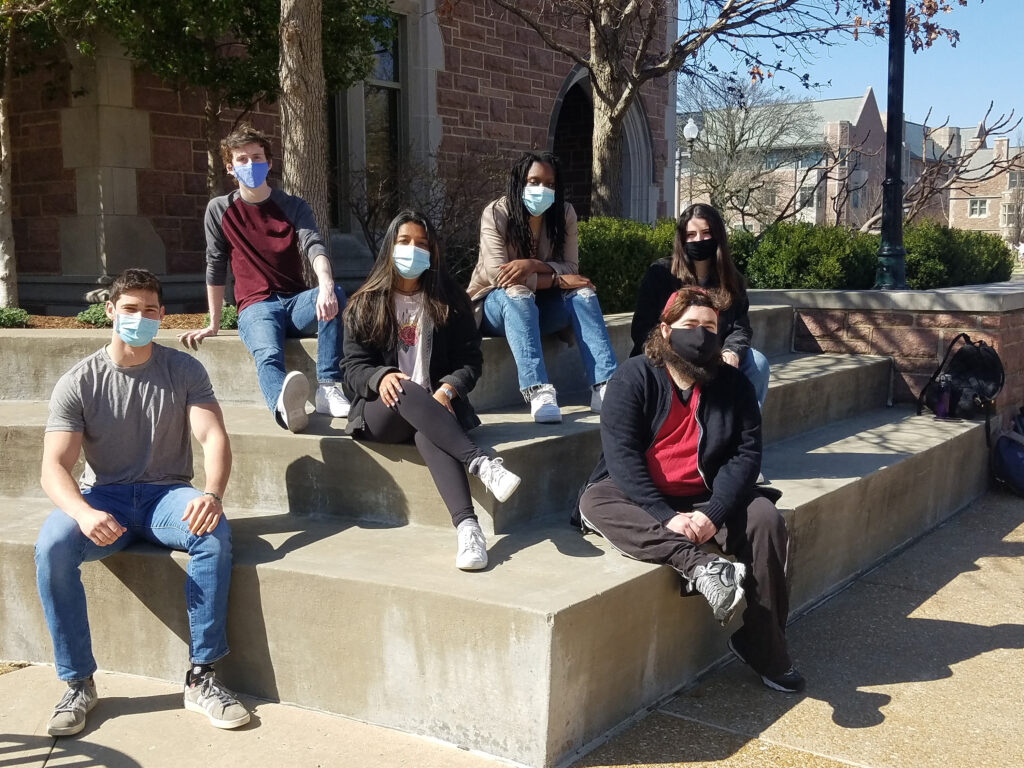
A playful edge
Though “The Covid Mysteries” will be presented live, the idea of social distancing has been integral to both rehearsals and final staging. For example, whenever the script calls for characters to interact – to hug, to fight, to kiss — the action is simultaneously mimed by actors standing at opposite ends of the stage.
“It’s pretty funny, but it also actually works,” Whitaker said. “We’re just admitting our limitations, and that gives it a playful, tongue-in-cheek kind of edge.
“And it’s not Zoom!,” Whitaker added with a laugh. “It feels so good to just be in a place, with other people, creating something together.
“I’m proud of us,” Whitaker concluded. “It’s been a hard year for artists, especially performing artists. But you look around the country … I don’t see a lot of other schools doing what we’re doing.”
Tickets
Performances of “The Covid Mysteries” will begin at 6 p.m. Thursday, Friday and Saturday, April 1, 2 and 3; and at 3 p.m. Sunday, April 4. All performances take place outdoors, on the PAD mobile stage, which will be on Mudd Field, near McMillan Hall.
Tickets are free, but advance reservations are required. To comply with campus pandemic guidelines, tickets are limited to WashU students, faculty and staff, one ticket per person.
For more information, call 314-935-6543 or visit pad.wustl.edu.
